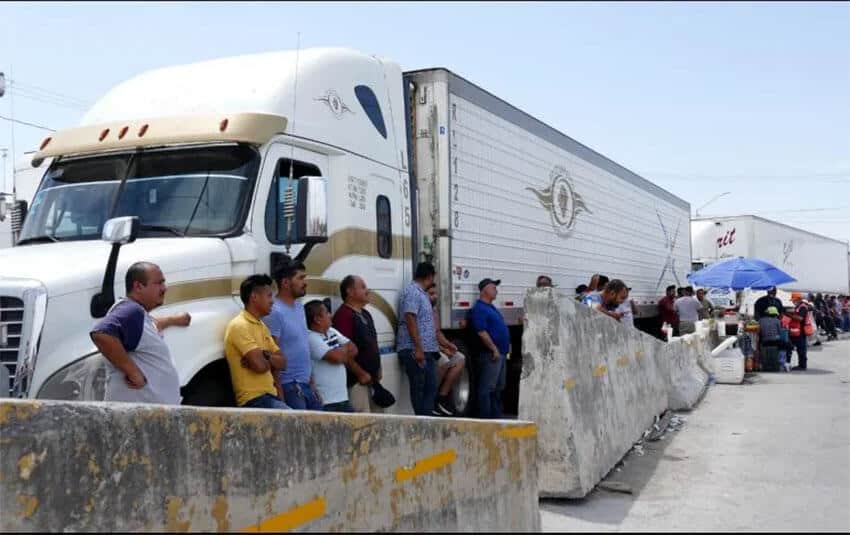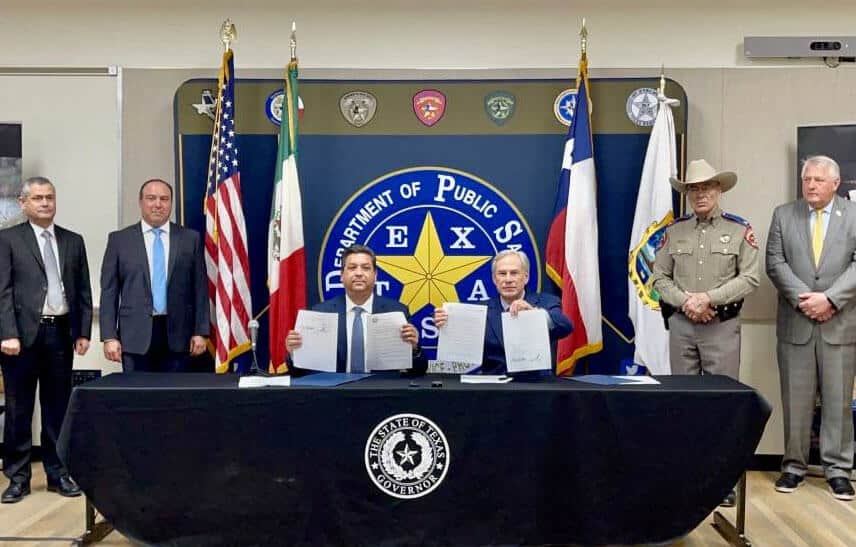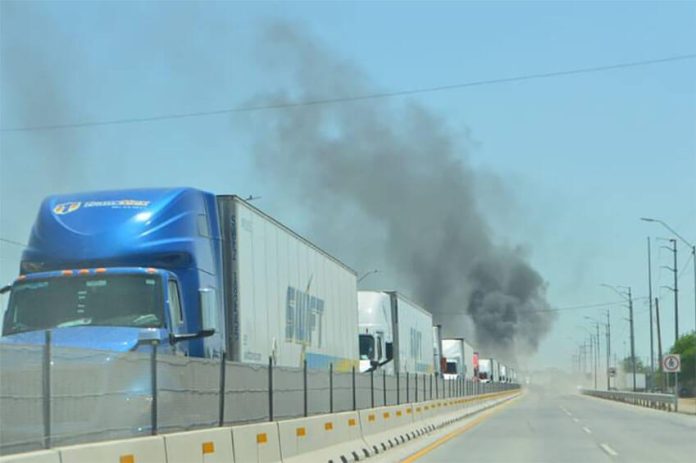The more stringent vehicle inspection program introduced by Texas at its border with Mexico earlier this month generated losses in Tamaulipas of at least 1 billion pesos (US $50.1 million) in the space of a single week, according to an umbrella group of business organizations.
“It was an economic disaster for the border area and for both Mexican and United States businesspeople,” said Julio César Almanza Armas, president of the Tamaulipas State Federation of Chambers of Commerce (Fecanaco).
The stricter inspection program, under which all commercial vehicles crossing into Texas were inspected, began on April 7 after Governor Greg Abbott directed authorities to conduct more thorough checks to detect drugs and migrants trying to enter the U.S. illegally.
Its implementation triggered protests by Mexican truckers, who faced waits of up to 30 hours to cross the border. Nuevo León Governor Samuel García negotiated an end to the program at that state’s sole border crossing with Texas six days after it took effect, while his counterparts in Chihuahua, Coahuila and Tamaulipas subsequently reached similar agreements with Abbott, who claims that the U.S. government isn’t doing enough to secure the country’s border with Mexico.
As a result, the program came to a complete end on Friday – eight days after it began – and random checks of vehicles resumed.

Almanza said that over 25,000 export shipments per day were held up by the tougher checks in Tamaulipas and asserted that it will take a long time for companies to recover from the losses they incurred due to the delays.
He said that over 45% of exports to the United States cross that country’s border with Tamaulipas. The crossing between Reynosa and McAllen is the most important entry point for agricultural products, while Nuevo Laredo, across the Rio Grande from Laredo, is the chief hub for Mexican exports of all kinds heading overland to the U.S.
Two-way trade between Mexico and Texas was worth US $177.8 billion in 2020, according to the Ministry of Foreign Affairs, with both sides benefiting almost equally from the cross-border exchange.
Almanza called on the federal government to take steps to avoid any possible resumption of the stricter inspection program.
The Fecanaco president suggested that the Texas government could introduce even stricter vehicle inspections if the Mexican government doesn’t clamp down on illegal migration and bolster security at the country’s southern border, where most migrants headed for the U.S. first enter Mexico. Abbott warned Thursday that the program could be reinstated, although he celebrated the pacts he reached with his Mexican counterparts.
At a press conference with Tamaulipas Governor Francisco García Cabeza de Vaca on Friday, the 64-year-old Texas Republican said that García had committed to providing “enhanced border security measures on the Mexico side of the border both at ports of entry and along the Rio Grande river to prevent illegal immigration from Mexico into Texas.”

“… Texas has now entered into border security enhancement agreements with the Mexican governors of Tamaulipas, Coahuila, Chihuahua and Nuevo León,” he added.
In a video message posted to social media on Saturday, Abbott – who is particularly irked about the U.S. government’s decision to end Title 42 expulsions of migrants to slow the spread of the coronavirus – said the previous two days had been “historic” for the state of Texas.
“I’ve met with governors from border states in Mexico to reach agreements where those governors in Mexico will be securing the border to reduce cross-border immigration into the state of Texas. If you think about it, in the past two days alone, I’ve done more than what the Biden administration has done in the past 15 months to address border security,” said the governor, who is vying to win a third term at the gubernatorial election to be held in November.
The federal government stayed out of border states’ negotiations with Texas, but denounced the stricter vehicle inspection program via a statement issued by the Ministry of Foreign Affairs that said that it would “significantly harm the commercial flow between our two countries.”
President López Obrador entered the fray on Monday by accusing the Texas government of acting against the principles of free trade. The measures introduced were “completely contrary to free trade” and amounted to “chicanery” on the part of Texas, he told reporters at his morning news conference.
“Legally they can do it but it’s really despicable,” López Obrador charged. “… Why do they do it? I believe that the governor of Texas aspires to be the Republican Party candidate,” he said, apparently referring to the U.S. 2024 presidential election.
“They think they will win affection with … [the strict vehicle inspections], even though they’re damaging,” López Obrador said.
“… There is a lot of irrationality, don’t think that irrationality is exclusive to conservative politicians in Mexico, no, it’s found all over the world,” he said.
“… It will continue happening because elections are coming. Instead of thinking … about how to resolve the problem of inflation, they’re already involved in politicking. … The aim is also to create conflicts … [but] we’re not going to fall into provocation,” López Obrador said, adding that “it’s a good thing” that the stricter inspection program has come to an end.
With reports from Reforma and Expansión Política
